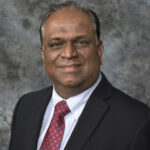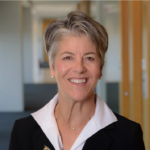 Burnout manifests in healthcare providers as physical exhaustion, compassion fatigue and feeling that work has become meaningless, taking a toll not just on providers, but also on their patients and the healthcare systems in which they practice, said Allen Anandarajah, MD, professor of medicine and associate chair for wellness, University of Rochester Medical Center, N.Y., at a virtual town hall delivered by the ACR on Oct. 27, 2021. However, both individual and institutional ways exist to help reverse its effects, he added.
Burnout manifests in healthcare providers as physical exhaustion, compassion fatigue and feeling that work has become meaningless, taking a toll not just on providers, but also on their patients and the healthcare systems in which they practice, said Allen Anandarajah, MD, professor of medicine and associate chair for wellness, University of Rochester Medical Center, N.Y., at a virtual town hall delivered by the ACR on Oct. 27, 2021. However, both individual and institutional ways exist to help reverse its effects, he added.

Dr. Anandarajah
Dr. Anandarajah and Christine Sinsky, MD, vice president of professional satisfaction for the American Medical Association (AMA), both discussed the causes of physician burnout. They also talked about ways in which hospital administrators and physician leaders can stave off the condition and help physicians restore a feeling of joy to the practice of medicine.
Marcus Snow, MD, chair of the ACR’s Committee on Rheumatologic Care (CORC) and assistant professor of medicine, University of Nebraska Medical Center, Omaha, co-moderated the event with Courtney Wells, PhD, assistant professor of social work, University of Wisconsin-River Falls.

Dr. Sinsky
Nearly Half of All U.S. Doctors Burned Out
Even before the onset of the COVID-19 pandemic, the rate of burnout among physicians was high. Dr. Sinsky said the AMA has been studying burnout for 10 years in conjunction with the Mayo Clinic and, more recently, Stanford University. “Physician burnout has historically been hovering around 50%,” she said.
This occupational distress is important to reverse. According to Dr. Sinsky:
- Physicians experiencing symptoms of burnout are twice as likely to make mistakes;
- Their patients are more likely to be dissatisfied with the care they receive;
- Burnout can contribute to higher rates of physician divorce, death from cardiovascular disease and, possibly, death from suicide; and
- Physician burnout is costly to institutions due to higher rates of turnover and malpractice claims.
When it comes to physician lifestyle, happiness and burnout, Dr. Anandarajah presented a 2020 Medscape survey of 15,000 physicians in various specialties in the U.S. showing that rheumatologists topped the list in terms of being happy outside work (60%).1 When it came to happiness on the job, on the other hand, rheumatologists ranked near the bottom with only 22% reporting being happy at work.2 As possible reasons for the lack of happiness at work, Dr. Anandarajah cited complexity of care, an increased pressure on productivity and issues secondary to rheumatology workforce shortages, which are shown by the increasing likelihood that patients must get on a waitlist to see a rheumatologist.


